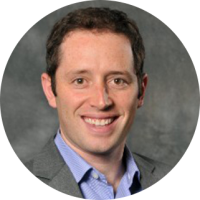Princeton University
This project will explore imagination by studying imagination experts – artists, musicians, and creatives with a proven ability to generate highly imaginative output. Using neural, behavioral, and linguistic measures of their capacity for simulation, we aim to uncover what it means to excel at imagination, and to identify which specific skills to teach individuals who don’t yet excel at imagination.
Researchers

Diana Tamir
iana Tamir is an Assistant Professor of Psychology at Princeton University. She uses functional neuroimaging, behavioral techniques, and machine learning to study the cognitive and neural basis of self-referential thought and social behaviors. She received her Sc.B in cognitive neuroscience from Brown University, her Ph.D. in Psychology from Harvard University, and her postdoctoral training at Stanford University.
Adam Waytz
Adam Waytz is a psychologist and an assistant professor of management and organizations in the Kellogg School of Management at Northwestern University. He uses methods from social psychology and cognitive neuroscience to study social cognition broadly, including processes related to humanization, dehumanization, morality and ethics. He has a bachelor’s degree in psychology from Columbia University and a doctorate in social psychology from the University of Chicago, and he received a National Research Service Award from the National Institute of Health to complete a postdoctoral.

Hal E. Hershfield
Hal E. Hershfield is Assistant Professor of Marketing at UCLA’s Anderson School of Management. Prior to UCLA, Professor Hershfield taught at NYU’s Stern School of Business, and was a Post-Doctoral Fellow at the Kellogg School of Management at Northwestern University. His research focuses on judgment and decision-making and social psychology, with a particular interest in how thinking about time can strongly impact decision-making and emotional experience. Professor Hershfield received his Ph.D. from Stanford University, and his B.A. from Tufts University. He was recently named a Rising Star by the Association for Psychological Science, and has received funding from the Templeton Foundation’s New Paths to Purpose Grant Program, and the Russell Sage Foundation Small Grant in Behavioral Economic.
